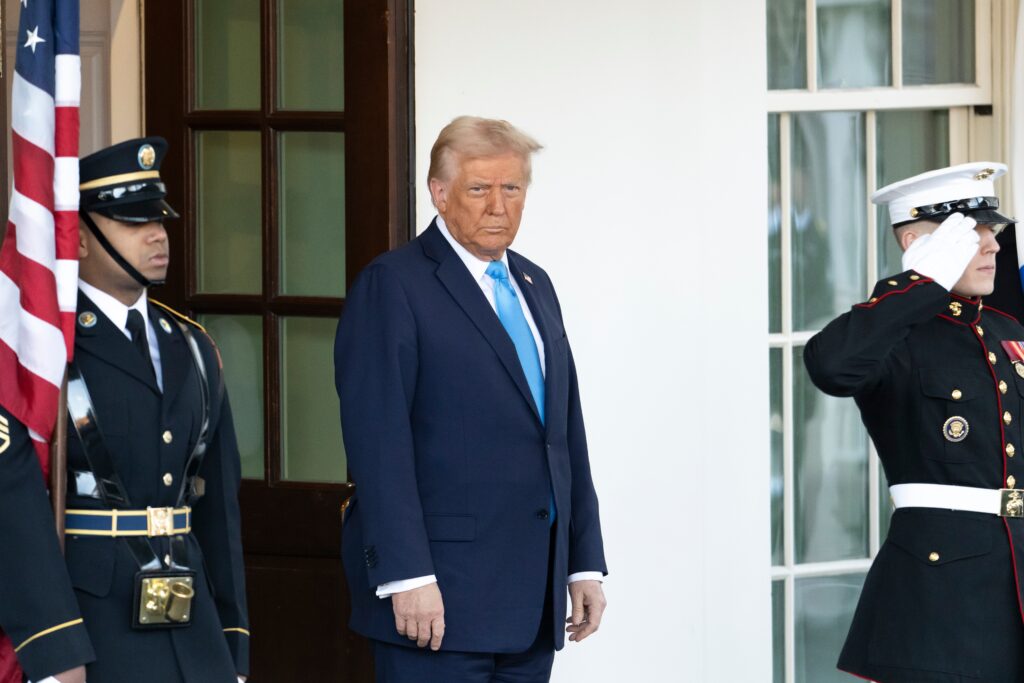President Donald Trump has announced a new 25% tariff on imported vehicles and auto parts entering the United States, effective April 2 for cars and May for parts. Trump claims the measure will attract significant investment and create thousands of jobs within the U.S. car sector. However, industry experts are expressing concerns, warning that the tariffs could lead to production delays, higher prices for consumers, and heightened tensions with key trade partners. This move is part of Trump’s ongoing efforts to boost domestic manufacturing while protecting U.S. industries from foreign competition.
Tariffs Affect Cars and Auto Parts – Potential Economic Fallout
The newly implemented tariffs target both foreign-made vehicles and auto parts, which are often assembled into finished cars in the U.S. Under this policy, Canada and Mexico will receive temporary exemptions for auto parts pending a review process. As of now, billions of dollars in trade flow between the U.S. and its neighboring countries. These tariffs could impact the prices of vehicles significantly, raising costs by an estimated $4,000 to $10,000 depending on the model and country of origin.
Industry Reactions: Stock Drops and Investor Concerns
Following the announcement, major automakers such as General Motors and Ford saw their stocks drop by 3% and 2%, respectively. Trump, however, remains steadfast in his stance, stating that the tariffs will remain permanent. “If you build your car here, there’s no tariff,” Trump remarked during a press conference in Washington, emphasizing the importance of manufacturing in the U.S.
Global Reactions: Japan and European Allies Push Back
Japan, which is home to major automakers like Toyota, Honda, and Nissan, responded with concerns about the impact of these tariffs. Prime Minister Shigeru Ishiba of Japan promised a full response, while Japanese automaker stocks took a significant hit after Trump’s remarks. Japan is the second-largest exporter of vehicles globally, and the new tariffs could severely affect their market share in the U.S.
The United Kingdom, European Union, and Canada have also voiced strong opposition to the tariffs. The UK, which exports high-end vehicles such as Jaguar and Land Rover to the U.S., is particularly worried about the effects on its automotive industry. European Commission President Ursula von der Leyen warned that these tariffs could harm both U.S. and European companies, raising costs for consumers on both sides of the Atlantic.
Impact on U.S. Auto Manufacturers and Consumers
The imposition of tariffs on foreign vehicles comes at a time when many U.S. automakers rely on international supply chains for components. This policy could disrupt production schedules, with experts predicting that costs could rise for U.S. manufacturers who rely on imported parts. The added burden of these new tariffs could also lead to higher prices for U.S. consumers, further straining household budgets.
Allies and Trade Relations at Risk
While the U.S. government moves forward with its tariff plan, key trade allies have expressed concerns. Canada’s Prime Minister Mark Carney called the decision a “direct attack” on the Canadian automotive industry, as many American manufacturers have significant operations in Canada and Mexico. Canada’s automotive sector plays a crucial role in supplying parts and vehicles to the U.S. market.
European leaders, including Ursula von der Leyen, warned that the tariffs would not only harm European exports but could escalate trade tensions globally. As a response, Trump threatened to impose even higher tariffs if European countries or Canada take retaliatory actions. The potential for a trade war looms as these countries evaluate their next steps.
U.S. Investment and Job Creation – Trump’s Optimistic View
Despite these concerns, Trump has praised the policy’s potential to boost domestic investment. Hyundai, South Korea’s largest automaker, announced a $21 billion investment in the U.S., including a new steel facility in Louisiana. Trump hailed the move as evidence that his strategy is working and promised that more investments would follow.
Union leaders have also expressed their support for Trump’s decision. Shawn Fain, president of the United Autoworkers, although previously critical of Trump, now endorses the tariff policy, calling it a step toward fixing the damage caused by past free trade agreements. Similarly, Matt Blunt, head of the American Automotive Policy Council, emphasized the importance of bringing more auto parts production to the U.S. to reduce reliance on imports.
The imposition of tariffs on foreign vehicles and auto parts marks a significant shift in U.S. trade policy, with potential long-term effects on both domestic manufacturers and international relations. While President Trump remains optimistic about the potential for job creation and investment, critics warn that the move could disrupt supply chains, increase costs for consumers, and strain trade ties with key partners.
